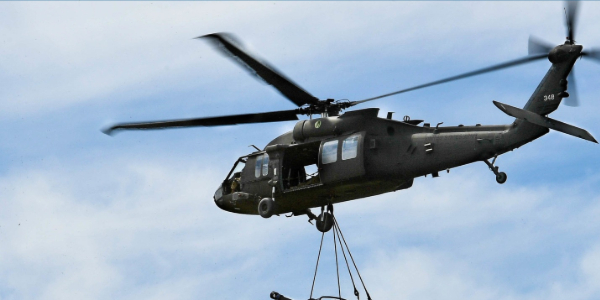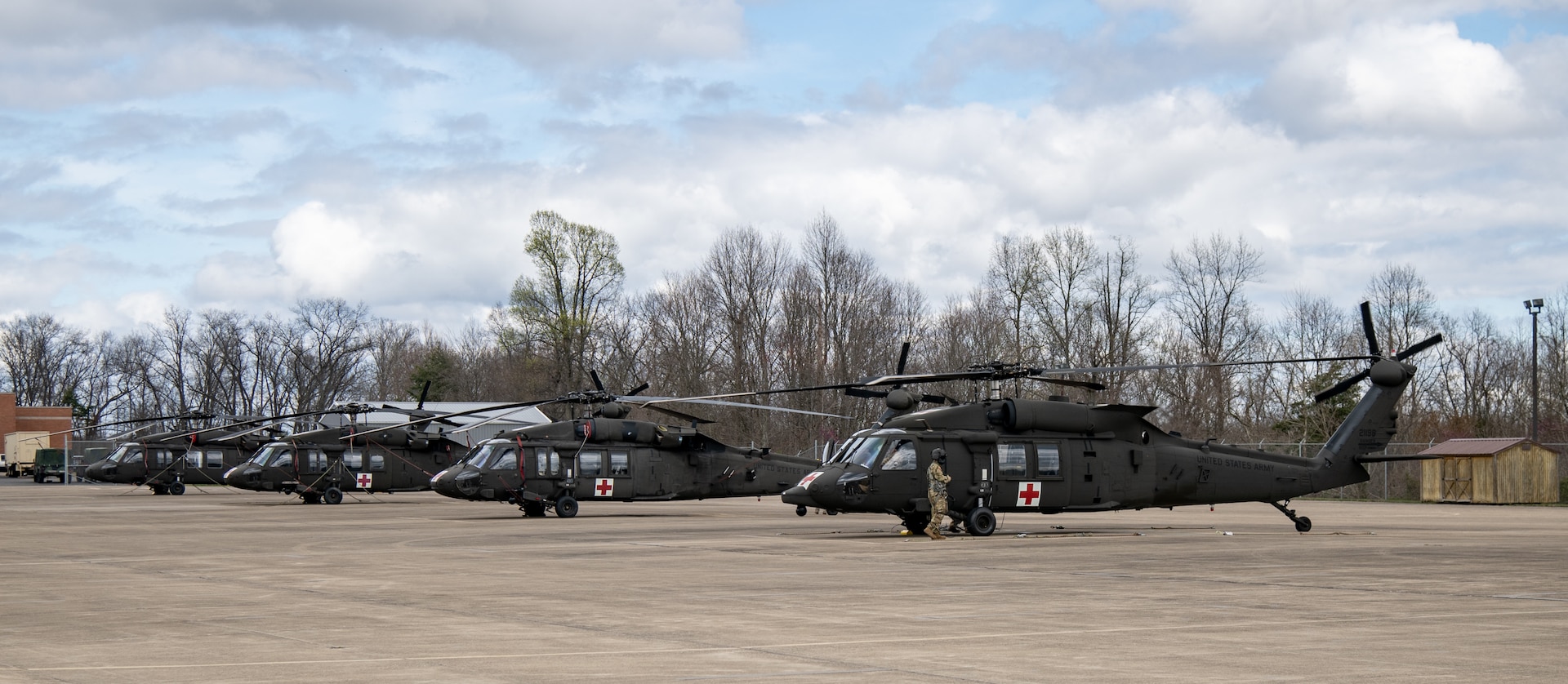Maintenance and Maintenance for UH 60 Helicopters
Maintenance and Maintenance for UH 60 Helicopters
Blog Article
The Influence of Sustainable Practices on the Future of Aircraft Workflow and Emissions Decrease
As the air travel market encounters raising scrutiny over its environmental effect, the fostering of lasting techniques arises as a crucial pathway towards future aircraft operations and discharges decrease. Advancements in sustainable aviation fuels and improvements in crossbreed propulsion modern technologies stand at the center of this improvement, encouraging substantial reductions in greenhouse gas emissions.

Introduction of Lasting Practices
Lasting techniques in aircraft procedures encompass a variety of methods targeted at minimizing environmental effect while keeping functional efficiency. These methods are important in the aviation sector's dedication to lessening its carbon footprint and sticking to global environmental requirements. Trick initiatives include optimizing trip courses to decrease gas intake, boosting upkeep methods to make sure aircraft run at peak effectiveness, and carrying out sophisticated innovations such as winglets and light-weight products that boost the rules of aerodynamics.

Involving and educating personnel on sustainability techniques additionally play a vital role, fostering a culture of ecological responsibility within organizations. Overall, the assimilation of these sustainable techniques not only aids minimize emissions yet also enhances the lasting practicality of the aviation market, guaranteeing it fulfills the needs of both consumers and regulative bodies while contributing to worldwide sustainability objectives.
Ingenious Gas Alternatives
Many ingenious gas choices are arising as essential remedies to lower the air travel market's reliance on standard fossil gas. Among these options, Lasting Aeronautics Gas (SAFs) have actually obtained substantial focus because of their prospective to reduce lifecycle greenhouse gas discharges by as much as 80% compared to standard jet fuels. SAFs are originated from numerous feedstocks, consisting of waste oils, agricultural deposits, and even algae, making them a flexible alternative for the market.
One more promising alternative is hydrogen fuel, which, when made use of in fuel cells, produces only water vapor as a byproduct. Furthermore, electric propulsion systems are being discovered, leveraging battery innovation to power airplane.
Lastly, biofuels originated from biomass are being checked out, using a sustainable choice that can be blended with standard fuels. Jointly, these innovative fuel options stand for an important step towards accomplishing a lasting aeronautics environment, aligning with global exhausts reduction targets and improving the industry's environmental stewardship.
Technological Developments in Aviation

Exactly how can technical improvements reshape the future of aviation? Innovations such as hybrid and electric propulsion systems are at the forefront, promising significant decreases in fuel usage and greenhouse gas discharges.
Moreover, the application of innovative materials, such as light-weight compounds, adds to improved the rules of aerodynamics and gas effectiveness. The usage of synthetic knowledge and maker discovering in trip procedures enhances path planning and minimizes fuel shed by allowing real-time changes based on climate and traffic conditions. In addition, the advancement of autonomous and from another location piloted aircraft systems stands to transform cargo and traveler transportation, potentially increasing performance while decreasing human error.
Moreover, sustainable air travel modern technologies, consisting of advanced air traffic monitoring systems, can minimize and streamline operations blockage, leading to lower discharges throughout flight. These advancements jointly stand for a paradigm shift in aeronautics, promising a future where sustainability and functional performance are intertwined, websites consequently sustaining the industry's commitment to minimizing its environmental effect.

Governing Structure and Compliance
In light of the expanding focus on ecological stewardship within the aeronautics field, the regulatory structure controling airplane operations is progressing to advertise lasting methods. Regulatory bodies, such as the International Civil Aviation Organization (ICAO) and various nationwide air travel authorities, are introducing rigorous guidelines focused on reducing exhausts and improving operational efficiency.
These laws often include the adoption of Sustainable Aeronautics Fuel (SAF), which has actually been acknowledged as an essential element in achieving reduced carbon footprints. Compliance with these laws needs airlines to execute sophisticated modern technologies and see post functional practices, such as enhanced trip courses and boosted air traffic administration, to lessen fuel intake.
Furthermore, the enforcement of exhausts trading plans go to these guys and carbon offsetting campaigns is ending up being progressively widespread, engaging airlines to keep an eye on and report their emissions properly. Non-compliance can result in considerable fines, thus pushing drivers to prioritize sustainability in their service models.
Eventually, the progressing regulatory landscape not only drives advancement and financial investment in eco-friendly modern technologies however additionally fosters a culture of liability within the aviation market. As these structures continue to develop, the emphasis on lasting methods will be essential to achieving the market's long-term ecological objectives.
Future Patterns in Aircraft Operations
As the air travel sector adapts to a significantly rigorous governing setting, future trends in aircraft operations are readied to concentrate on cutting-edge solutions that even more improve sustainability and performance - uh 60. Key advancements will likely include the adoption of sophisticated air website traffic management systems, which utilize real-time information and man-made knowledge to maximize trip courses, minimizing fuel consumption and discharges
One more considerable pattern is the boosted integration of sustainable aeronautics gas (SAFs) These choices to traditional jet gas, stemmed from renewable resources, can significantly lower lifecycle greenhouse gas emissions. The sector's dedication to SAFs will likely speed up as airline companies work together with gas manufacturers to make certain schedule and cost-effectiveness.
In addition, the press in the direction of electrification and crossbreed propulsion systems is getting momentum. Emerging aircraft layouts will certainly include these innovations, using quieter and more reliable operations, especially for short-haul flights.
Verdict
The adoption of lasting aviation fuels, paired with improvements in hybrid and electrical propulsion systems, is important for lessening lifecycle greenhouse gas exhausts. Enhancing trip paths and accepting cutting-edge technologies add to a quieter and a lot more ecologically pleasant air travel field.
Technologies in lasting air travel fuels and advancements in crossbreed propulsion technologies stand at the center of this improvement, encouraging significant decreases in greenhouse gas exhausts.Numerous cutting-edge gas choices are emerging as essential remedies to reduce the aviation sector's dependence on typical fossil fuels - uh 60. Among these options, Sustainable Aviation Gas (SAFs) have actually gained significant interest due to their prospective to reduce lifecycle greenhouse gas emissions by up to 80% compared to traditional jet gas.An additional substantial trend is the raised integration of sustainable air travel fuels (SAFs) The adoption of sustainable aeronautics fuels, coupled with improvements in hybrid and electric propulsion systems, is vital for decreasing lifecycle greenhouse gas exhausts
Report this page